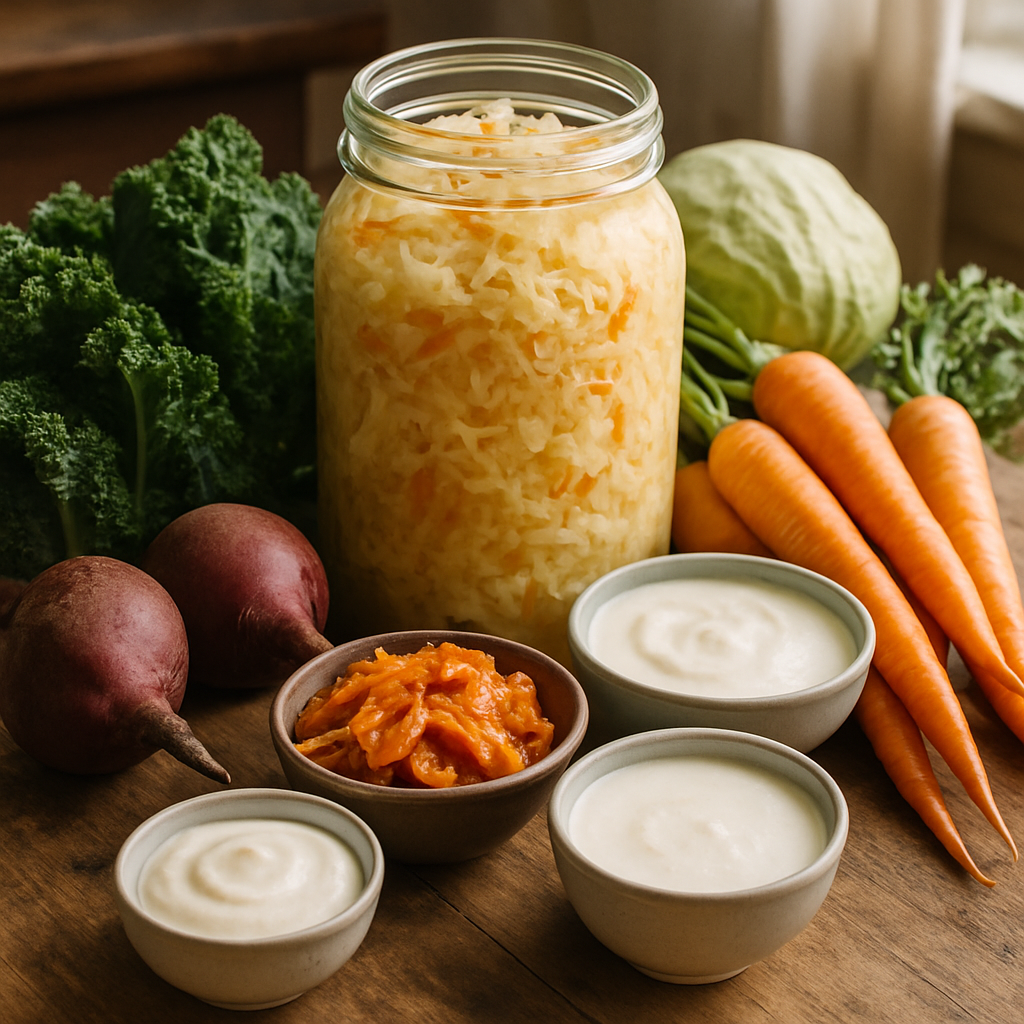
Trillions of microscopic organisms are living inside your gut right now, and they’re not just freeloading. These tiny tenants make up your gut microbiome – a complex ecosystem that’s become the darling of scientific research over the past decade. Why all the fuss about these gut bugs? Because they’re doing way more than just helping digest that burrito you had for lunch.
The gut microbiome has emerged as a major player in immune function, with research suggesting these bacteria might influence everything from how often you catch a cold to your risk of developing autoimmune conditions. Let’s cut through the hype and get to the science of how your gut bacteria and immune system are having quite the conversation without you even knowing it.
The Bacterial Universe Within
Your gut houses roughly 100 trillion microorganisms – bacteria, viruses, fungi, and other microscopic life forms. That’s about 10 times more microbial cells than human cells in your entire body. These microbes collectively weigh about 2-5 pounds – roughly the weight of your brain. Not too shabby for organisms we can’t even see.
The composition of this internal ecosystem varies dramatically between individuals. Your microbiome is as unique as your fingerprint, shaped by factors including genetics, diet, environment, medication use (particularly antibiotics), and even how you were born and fed as an infant.
Dr. Martin Blaser, Director of the NYU Human Microbiome Program, has spent decades studying these relationships. His research suggests that modern practices like C-section deliveries and frequent antibiotic use might be altering our microbiomes in potentially problematic ways. “We’re conducting a massive, uncontrolled experiment on an ecosystem that’s been evolving with us for millions of years,” he told me at a conference last year.
The gut microbiome doesn’t just sit there passively. These microbes produce thousands of metabolites (chemical compounds) that interact with our bodies. They help break down fiber, produce vitamins like B12 and K, and create short-chain fatty acids that nourish the cells lining your gut. But perhaps most fascinating is how they communicate with your immune system.
Your Gut’s Immune Connections
About 70-80% of your immune tissue resides in and around your gut. This concentration isn’t coincidental – it’s where your body meets the outside world most extensively, processing roughly 30 tons of food throughout your lifetime.
The relationship between gut bacteria and immunity starts early. As newborns, our immune systems are immature and learning to distinguish friend from foe. Exposure to beneficial bacteria helps “train” the immune system, teaching it what to attack and what to tolerate.
Research from Washington University School of Medicine showed that mice raised in completely sterile environments – with no microbiome at all – develop severely impaired immune systems. When these mice were later exposed to normal bacteria, they developed excessive inflammatory responses, suggesting their immune systems never learned proper regulation.
The gut barrier itself represents another critical interface. A single layer of epithelial cells separates your internal environment from trillions of microorganisms. This barrier isn’t just physical – it’s an active immunological boundary. Specialized cells sample gut contents, presenting information to immune cells about what’s happening in the intestinal neighborhood.
“Think of it like border security,” explains Dr. Kenya Honda, immunologist at Keio University School of Medicine. “Your gut barrier needs to know who to let through and who to keep out. The microbiome helps train those border guards.”
When this system works well, beneficial bacteria help maintain the gut barrier while keeping harmful pathogens in check. They compete for resources and space, essentially crowding out the bad guys. Some even produce antimicrobial compounds that target specific pathogens.
I witnessed this fascinating relationship firsthand while recovering from food poisoning last summer. After a round of antibiotics knocked out both good and bad bacteria, my digestive system took weeks to return to normal. My doctor explained that rebuilding a healthy microbiome takes time – something many of us don’t consider when popping antibiotics for minor infections.
From Gut to Systemic Immunity
The microbiome’s influence extends far beyond local gut immunity. Research has revealed communication highways connecting gut bacteria to immune function throughout the body.
One pathway involves short-chain fatty acids (SCFAs) like butyrate, propionate, and acetate. These compounds, produced when gut bacteria ferment dietary fiber, don’t just feed gut cells – they also regulate immune cell development and function. Studies show SCFAs can influence regulatory T cells, which help prevent excessive inflammation and autoimmune responses.
The vagus nerve – the longest cranial nerve running from brain to abdomen – provides another communication channel. This neural pathway allows signals from gut microbes to reach the brain and other organs, potentially influencing systemic immune responses.
Bacterial fragments and metabolites can also enter circulation, affecting immune cells throughout the body. Research published in Nature showed that certain gut bacterial species can enhance the effectiveness of cancer immunotherapy treatments – an effect that works even when these bacteria are introduced to distant tumor sites.
These connections help explain why gut health might influence seemingly unrelated conditions. Studies have found associations between microbiome composition and allergies, asthma, arthritis, and even neurological disorders with immune components like multiple sclerosis.
“We used to think the immune system was in charge, telling bacteria what to do,” says Dr. Eran Elinav of the Weizmann Institute. “Now we’re realizing it’s a two-way street. The microbes are programming immune responses as much as the other way around.”
This doesn’t mean your gut bacteria control everything about your health – genetics, environment, and lifestyle still play major roles. But the microbiome represents a previously underappreciated factor in the immune equation.
Nurturing Your Microbial Allies
Given these connections, how can you support a healthy gut microbiome? The science points to several key approaches:
Dietary diversity appears crucial. Different bacterial species thrive on different nutrients, so varied diets support varied microbial communities. Research from the American Gut Project found people who eat more than 30 different plant foods weekly have more diverse microbiomes than those eating fewer than 10.
Fiber-rich foods provide fuel for beneficial bacteria. Prebiotic fibers – found in foods like garlic, onions, leeks, asparagus, bananas, and whole grains – are particularly valuable. These indigestible fibers pass through your small intestine unscathed, reaching the colon where bacteria ferment them, producing those beneficial SCFAs.
Fermented foods introduce live microorganisms directly. Yogurt, kefir, sauerkraut, kimchi, and kombucha contain various probiotic strains, though the evidence for their benefits varies widely depending on specific strains and conditions.
I tried making my own kimchi last year – a messy experiment that filled my kitchen with pungent aromas but ultimately yielded delicious results. Beyond the culinary adventure, research suggests fermented foods may increase microbiome diversity and reduce inflammatory markers.
Limiting unnecessary antibiotics helps preserve microbial communities. While these medications save lives when properly prescribed, they’re often used for conditions that would resolve without intervention. Each course of antibiotics can disrupt microbiome composition for months.
Stress management might also benefit your bacterial residents. The gut-brain axis works both ways – psychological stress can alter gut function and microbiome composition, potentially creating a vicious cycle of immune dysregulation.
Regular physical activity appears to promote microbiome diversity as well. Studies comparing athletes to sedentary individuals consistently find differences in microbial composition, though the exact mechanisms remain under investigation.
Commercial probiotic supplements represent another approach, though their benefits remain somewhat controversial. Unlike dietary interventions, which support your existing microbial community, probiotics attempt to introduce specific bacterial strains. Results vary widely depending on the strains used, dosage, individual gut conditions, and the specific health outcomes measured.
The science of microbiome manipulation remains young. We’re still figuring out which interventions work best for which people and conditions. What works for your neighbor might not work for you, given the highly individualized nature of gut ecosystems.
Your gut microbiome represents an exciting frontier in our understanding of immune function. These bacterial communities don’t just help digest food – they actively shape how your immune system develops and functions throughout life. By supporting these microbial allies through diet and lifestyle choices, you might help your immune system function at its best.
The research continues to evolve rapidly, with new connections between gut bacteria and health emerging regularly. What’s becoming increasingly clear is that these microscopic inhabitants deserve more attention than they’ve historically received. Your immune system and gut bacteria have been talking all along – we’re just finally learning to listen to their conversation.

